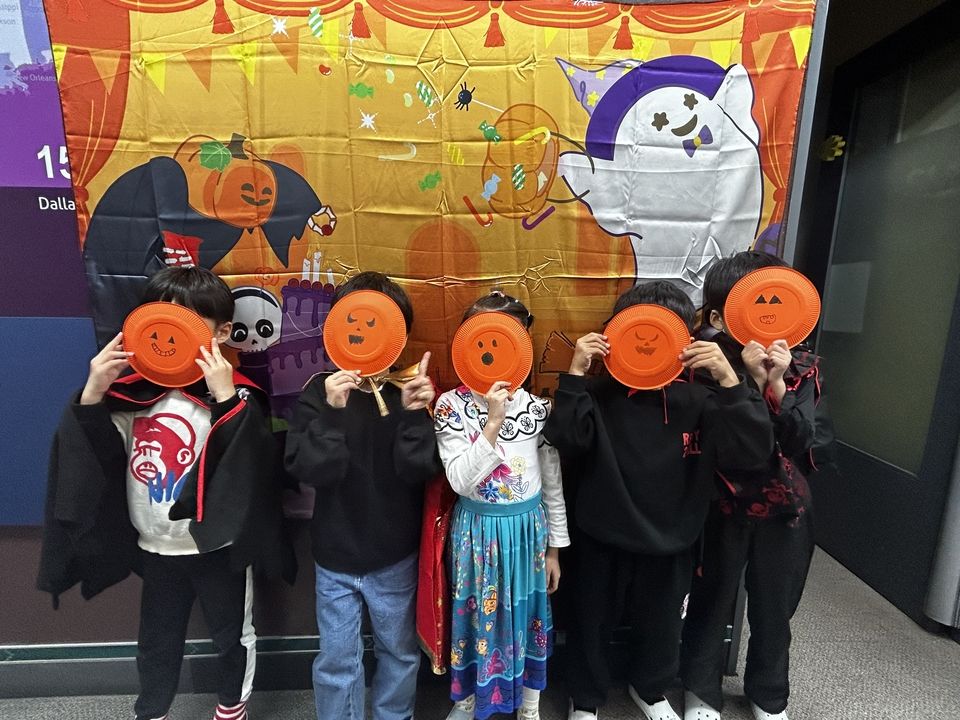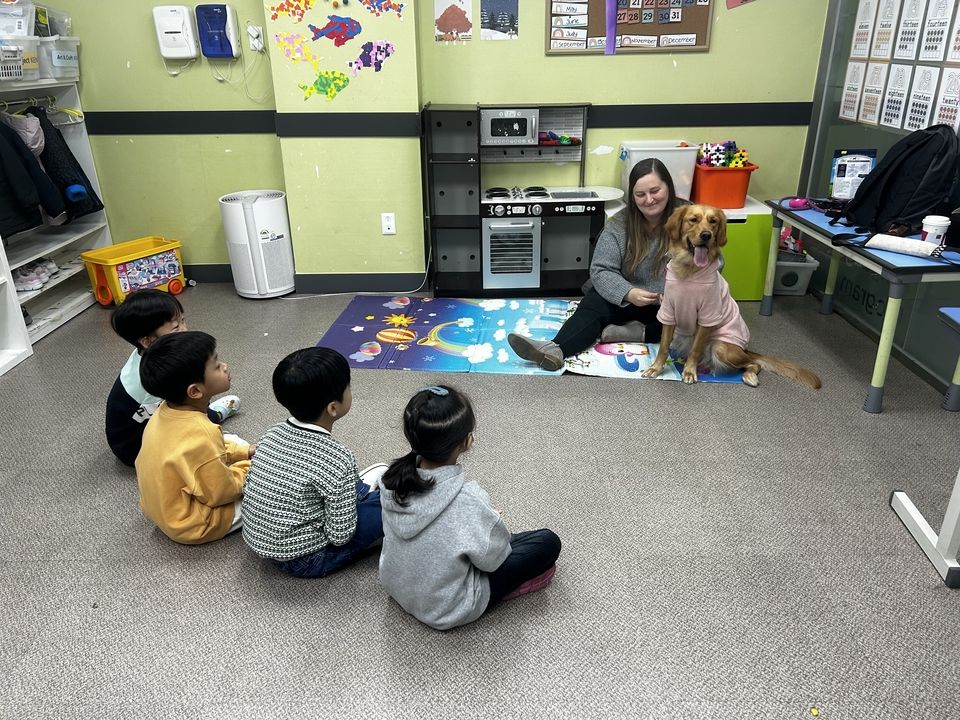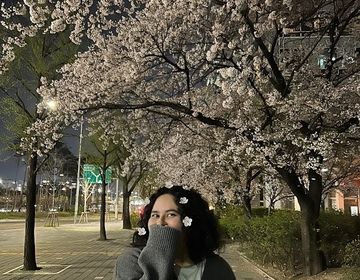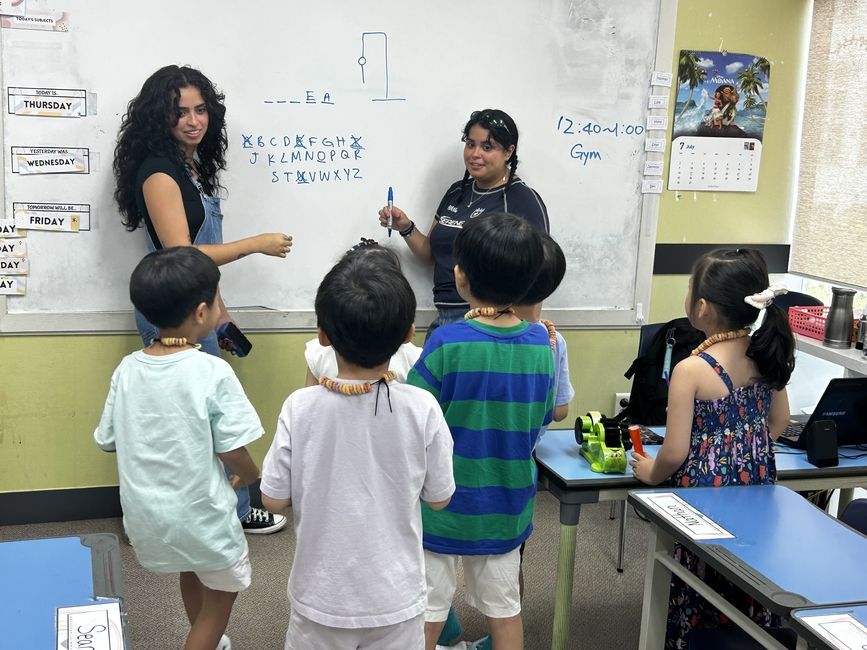How to Nail Your Private School Interview in South Korea
Congrats on securing your first interview at a private school in South Korea! I am literally so proud of you!
Despite all the nerves you could possibly be feeling, the interview process isn’t actually all that bad. While it can seem overwhelming, understanding the interview process can increase your chances of landing the job you want. Don’t worry about arranging the interviews or prepping too hard. CIEE’s dedicated in-country staff will help coordinate and arrange interviews and help you prepare as much as possible.
Before we jump into the details of the interview process, it’s important to understand the Korean education system.
Private schools, or hagwons, are sort of like private tutoring centers that offer English courses outside of the student’s regular school hours. Most hagwons cater to elementary, middle, and high school children while others combine kindergarten into their schedule as well as secondary school. Hagwons offer classes in a number of subjects, including English, and can range in size from small, mom-and-pop businesses to larger chain-operated schools.

Preparation for the Interview
1. Research the School
Researching the school you are interviewing with is always a good place to start. Understanding a school’s teaching philosophy and curriculum can help sway your decision on whether this school is actually a good fit for you. Much of the information online might be a bit outdated, so your best bet is to search in the subReddit /teachinkorea to find more information about your school. Keep in mind, websites like Glassdoor aren’t common in Korea so there might not be any information there either.
2. Know the Job Requirements
Job descriptions for teaching positions can vary widely. Some roles might require a focus on conversational English, while others might involve preparing students for standardized tests or improving academic performance. If you are teaching kindergarten, your duties might include doing arts and crafts, prepping for kindergarten graduation, or writing report card comments. Ensure you are clear about the expectations and duties that are expected of you.
3. Cultural Sensitivity
Korean culture places a strong emphasis on respect and hierarchy. Familiarize yourself with Korean etiquette, such as bowing as a sign of respect and using formal language in professional settings. Showing cultural awareness during your interview can leave a positive impression. It is also important to note that many interviewers will ask about why you decided to teach in Korea. This is the best time to talk about your appreciation for Korean culture and the education system while not making the point of only talking about Kpop or Kdramas.
Common Interview Formats
Interviews for teaching positions in South Korea are conducted via video chat through Skype, Zoom, Google Meets, or Teams. Interviews generally are conducted in two steps:
Step 1. Video Interview with Head Teacher
Many schools will connect you with their head teacher for a preliminary interview. Usually this is just to get a feel of your personality and go over some points on your resume to see if you are a good fit for the school and their current staff of teachers. This is sometimes done with the head Korean teacher, but usually is done with the head foreigner teacher.
Step 2. Video Interview with Director
The second round of your interview will most likely be with the school’s director or owner. This is your opportunity to shine and talk about all the things that make you passionate about teaching, your love of children, and what you are looking forward to as a teacher in Korea.
Typical Interview Questions and How to Answer Them
1. Tell Us About Yourself.
This is your opportunity to provide a concise overview of your educational background, experience, and why you are interested in teaching in South Korea. Highlight any previous international travel or study experience or teaching roles that are relevant.
2. Why Do You Want to Work at This School/Hagwon?
Talk about what you learned during your research of the school. Discuss specific things that attracted you to their school, such as their teaching methods, their work-life balance, or the curriculum that they follow.
3. What is Your Teaching Philosophy?
This is your chance to share what makes you passionate about teaching. Talk about how you are going to capture your student’s interest in your lessons, how you will handle classroom management, and how you will adapt to vast and different learning styles.
4. How Do You Handle Classroom Management?
Discuss strategies and techniques you use in order to maintain a positive and productive classroom environment. Provide examples of how you have effectively managed challenging situations in the past. Try to highlight any relevant experiences from previous teaching jobs or your practicum course. This is also a great time to recall and highlight any strategies and methods you learned in the Teach in Korea TEFL Course!
5. Can You Describe a Successful Lesson You Have Taught?
Prepare some examples that showcase your teaching skills and how you are able to achieve learning objectives. Include details about the lesson plan, student’s reactions and engagement, and the outcome of the lesson (this could be test scores, speaking abilities, etc) .
6. How Do You Incorporate Technology into Your Lessons?
Talk about how you will use technology in order to enhance the learning experience and make lessons more interactive and engaging. Feel free to geek out and talk about different software, games, or ideas you might have to make students feel happier about learning English.
7. What Do You Know About Korean Culture and How Will You Adapt Your Teaching Style?
Express that you have made an effort to understand Korean culture and are prepared to adapt your teaching style accordingly. This might include understanding cultural norms, holidays, hierarchy, and how these cultural factors can impact the classroom environment and your relationship with your students.
The Teaching Demonstration
In many cases, especially with hagwons, you might be asked to conduct and record a mock lesson. This is your chance to showcase your teaching style and how you can potentially engage students. Don’t worry about conducting your mock lesson in front of actual students. I asked my sister and her friends to be the off screen voices of my “students” learning the lesson.
- Be Clear and Structured: Plan a lesson that is well-organized and easy to follow. Pick an easy introductory topic like learning the names of zoo animals or colors. When I did my mock lesson, I chose to have the students review zoo animals and then learn simple adjectives to describe the animals, Demonstrate clear objectives and provide activities that are interactive and engaging.
- Adapt to Different Levels: If possible, show how you would adjust the lesson for different proficiency levels or learning styles. I had my sister’s friends ask a bunch of questions so I could reword the lesson or explain things in a different way in order for them to understand.
- Engage the “Students”: If you’re teaching to a panel rather than actual students, make your demonstration as interactive as possible. Use questions, discussions, and activities to keep the panel engaged. For my lesson, we reviewed zoo animals and incorporated adjectives that could be used to describe animals so I decided to make my students stand up and do a song and dance. I then divided my class into teams and made them go on a scavenger hunt for puzzle pieces that create an animal’s picture at the end.

Questions to Ask Your Interviewer
At some point, your interviewer will give you some time to ask questions you may have about the school. Here are some questions I have personally asked that helped me get a better sense of the school.
- What does a typical day for the foreign teachers look like?
- How many classes am I expected to teach per day? Per week?
- Will I be asked to work on weekends or holidays?
- Will I be expected to create lesson plans and plan out my own curriculum?
- What grade level(s) will I be teaching?
- What happens if I get sick and need to use a sick day?
- What is the management style like?
- What will my accommodations look like?
- Is it possible to speak to a current foreign teacher about their experience?
Post Interview & Follow Ups
After the interview, it’s essential to follow up with a thank-you email. Let your interviewer know you are thankful for the opportunity to interview and, if you really want to work at this location, reiterate your excitement for the position and becoming a teacher in Korea.
Did you receive an offer letter after one of your interviews and you want to sign with them? Congrats! Be sure to read over the contract carefully and if you have any questions about the job or the contract, CIEE’s in-country team will relay all your questions and concerns to the employer! On the other hand, if you feel a bit unsure about a school after an interview, CIEE’s placement team will help work with you to find the school that is right for you.
That’s all there is to it! Good luck on your interviews!
Related Posts

A Comprehensive Budgeting Guide for English Teachers in South Korea
A Comprehensive Budgeting Guide for English Teachers in South Korea Teaching English in South Korea has become an increasingly popular option for young people looking to travel and get some... keep reading

Professionalism in South Korea as a Native English Teacher
As a native English teacher in South Korea, understanding Korean culture and professionalism is crucial for both personal success and the broader impact you can have on your students. South... keep reading

How to Go to the Doctor in South Korea as an English Teacher: A Guide to Healthcare and Health Insurance
As an English teacher in South Korea, maintaining good health is essential while living abroad. Navigating the healthcare system can seem daunting and stressful at first, especially if you can’t... keep reading

